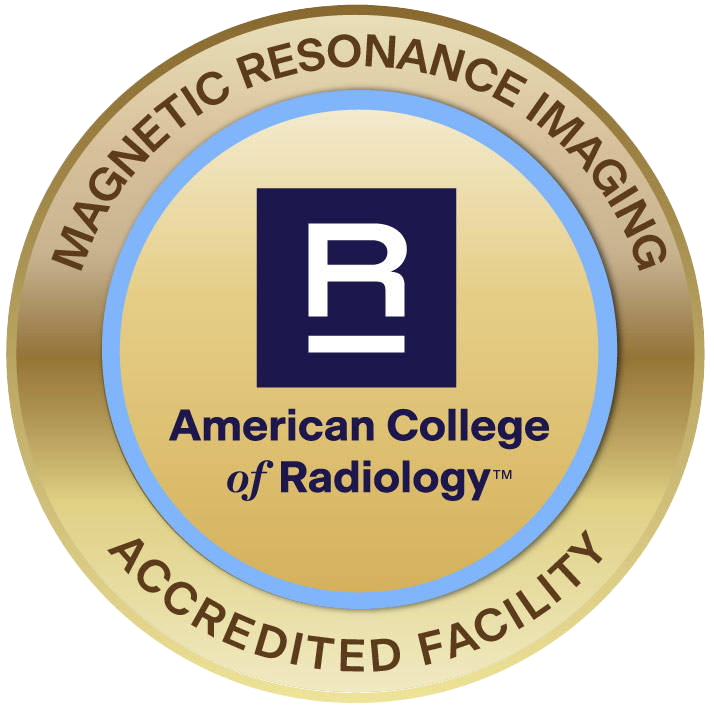Address & Directions:
7714 E. 91st St.,Tulsa, OK 74133
Fax: (918) 523-7717
Get DirectionsHours:
Monday–Friday: 7:00am - 11:00pmSaturday & Sunday: 7:00am - 11:00pm*
• X-ray: 8:00am - 6:00pm
*By appointment only
Closing time and hours differ by exam type, please call the center to verify or make an appointment.
Services at this Location:
Welcome to Envision Imaging of Tulsa, Oklahoma
Unmistakable Quality & Spectacular Service at Our Oklahoma Imaging Center
Envision Imaging of Tulsa offers imaging services in MRI, CT, X-ray, CT Angiography (CTA) Ultrasound, MR Angiography (MRA), Arthrograms, and Myelogram. Our facility features a 1.5T Short Wide Bore High Field MRI located in a room filled with windows and professional lighting, creating a bright serene environment.
Customer service is our greatest value and we pride ourselves on putting the customer first. Come to visit us for your next appointment, we know you’ll agree.
Why Choose Envision Imaging of Tulsa?
Envision Imaging of Tulsa is revolutionizing imaging with consistent and efficient service processes building the foundation of our business. We are an independent, locally owned diagnostic center advanced imaging in Oklahoma. Our community promise is unmistakable quality and spectacular service every time a patient visits our offices. Once you try us we know you’ll agree that Envision Imaging of Tulsa is “raising the bar” of quality service and diagnostics.
- We use the latest technology.
- We provide the best possible scans.
- We meet your insurance needs.
- We have complimentary sweet treats and refreshing beverages.
- We offer free Wi-Fi.
- We embrace a culture of commitment to being helpful, timely, and friendly for every customer.
- We understand your needs and provide compassionate service to make your imaging experience the best it can be.
Envision Imaging of Tulsa’s mission is to provide “customer delight” for its patients, to support our referring physicians by assisting with the efficiency of their medical practices and to remain a cut above other providers available in the Tulsa and the surrounding area. Consistency, reliability, and timeliness are staples that let Physicians rely on when utilizing our MRI and X-Ray services for treating patients. The Envision Imaging of Tulsa team is a group of professional experts that joined together, combining experience in medical diagnostic imaging in order to meet the unique healthcare needs of this community. Our hand-picked a staff possesses over 80 years of experience in the medical diagnostic imaging community. From scheduling your appointment through reporting results, our mission is to support physician and patient needs while exceeding the expectations of both parties. Experience the Envision Imaging of Tulsa difference yourself and you won’t go anywhere else!
Call our team today to schedule your appointment
Services at This location
We offer a variety of world-class diagnostic imaging scans at Envision Imaging. Browse the different procedures we offer below.
MRI scans in Tulsa, Oklahoma
A magnetic resonance imaging (MRI) scan allows doctors to examine the inside of the body using magnetic fields and radio waves. It takes detailed photos of the spine, brain and other organs and joints. An MRI scan can detect the possible presence of disease or injury early on. That way, the appropriate treatment can begin as soon as possible.
MRI scans are completely painless. You’ll lie still on your back on an examination table while the machine captures images. You can also listen to music during your procedure if desired.
CT scans in Tulsa
A computed tomography (CT) scan uses a series of x-ray views captured from different angles, providing detailed images of the body. It’s incredibly useful for emergency situations requiring prompt action. It can detect internal bleeding or injuries, identify diseases like cancer, pinpoint the location of a blood clot or tumor, and help guide surgical procedures.
During a CT scan, you’ll lie flat on a table. A donut-shaped tube moves around your body and takes pictures from various angles.
Ultrasounds in Tulsa
Ultrasound or sonogram imaging uses frequency sound waves instead of radiation to produce photos of the inside of the body. The sonographer holds a device called a transducer over your skin to capture real-time movement and structure of organs and blood flow.
An ultrasound scan can diagnose a wide variety of medical conditions and evaluate symptoms like pain, swelling and infections. It can monitor pregnancy and help guide procedures like biopsies. It can also assist anesthesiologists in guiding needles near nerves.
X-rays in Tulsa
X-radiation (x-ray) imaging uses a specialized computer or film to capture internal body images with x-ray particles, or photons. It can help detect broken bones and fractures, as well as diagnose conditions like osteoporosis, arthritis, blocked blood vessels, cancerous tumors and more.
During an x-ray, you may need to lie down, sit or stand in multiple positions depending on the bodily area being examined. A large camera attached to a steel arm moves over your body while capturing photos.
Arthrograms in Tulsa
An arthrogram MRI can help radiologists identify joint-related issues that standard imaging might overlook. It’s primarily used to evaluate joint function and determine whether joint replacement or surgery is needed.
Before an arthrogram, a radiologist injects your joint with contrast dye. This coats the inner lining of the joint structures so it appears white, bringing attention to any issues in your joint. Your doctor can use these images to diagnose a condition and pursue treatment.
CTAs in Tulsa
CT angiography (CTA) is a procedure where a radiologist injects a special dye into your arm or hand before a CT scan. This produces detailed images of tissues and blood vessels. You may need a CTA if your doctor locates an irregularity in your brain, blood vessels or other body parts. It can detect aneurysms, blood clots, tumors, narrowed blood vessels and other abnormalities.
The information collected from a CTA scan can help prevent a stroke or heart attack. It can also prepare you for procedures like kidney transplants. Your doctor can use it to create an accurate diagnosis and treatment plan.
MRAs in Tulsa
A magnetic resonance angiogram (MRA) scan involves the same machinery as an MRI scan. It uses a strong magnetic field and radiofrequency waves to generate detailed imaging of the blood vessels in your brain, neck, kidneys and legs.
An MRA scan can provide information that can’t be obtained via a CT scan, ultrasound or x-ray. It’s mainly used to locate issues with blood vessels — like clots, calcium deposits, aneurysms or stenosis — that may reduce blood flow.
Myelograms in Tulsa
A myelogram test uses fluoroscopy — real-time x-ray imaging — to produce a clear view of the spinal cord and spinal column. It’s used to find issues in the spinal canal, such as herniated discs, tumors, spinal stenosis, bone spurs and more.
During a myelogram, you’ll lie on your stomach on a padded table. A radiologist will inject contrast dye into the space around your spinal cord, then view the dye as it flows through these spaces. This helps them find abnormalities and create an appropriate treatment plan.








